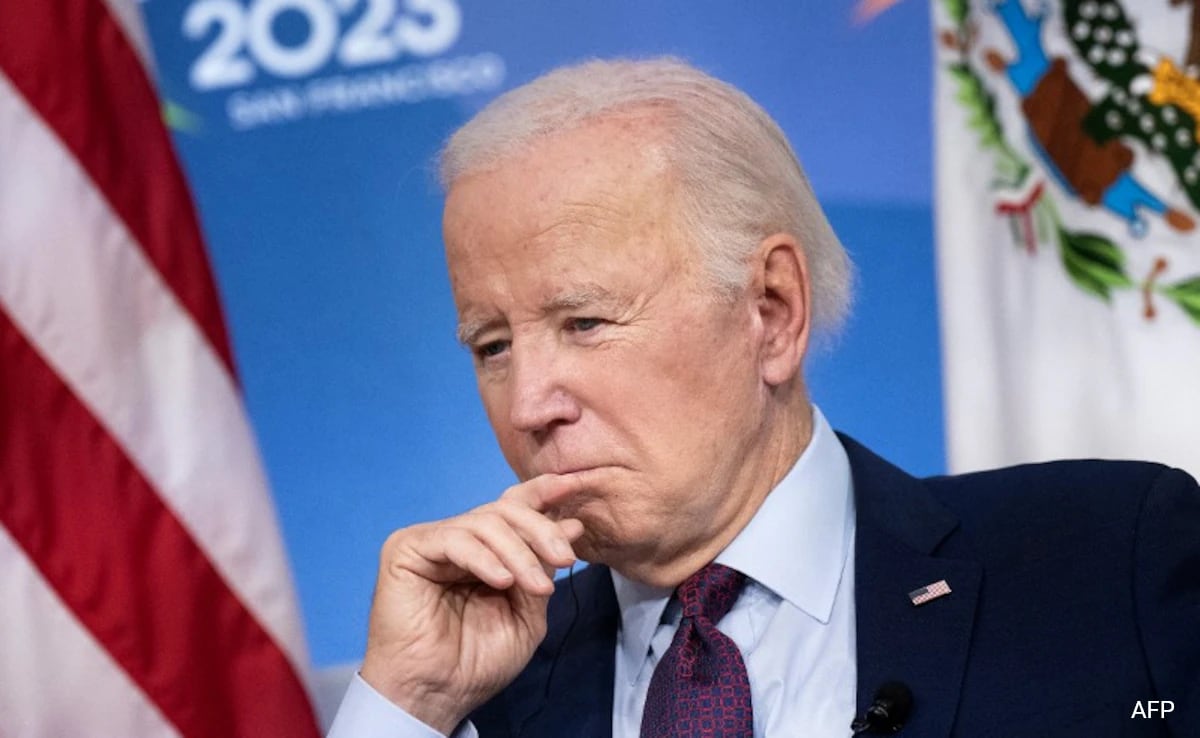"Will Not Allow...": Maldives President Says Indian Troops To Exit By May
Sticking to his anti-India stand, Maldives President Mohamed Muizzu told the parliament today that the island nation will not allow "any country to interfere with or undermine our sovereignty"

Sticking to his anti-India stand, Maldives President Mohamed Muizzu told the parliament today that the island nation will not allow "any country to interfere with or undermine our sovereignty". He said New Delhi and Male have agreed that Indian troops will leave The Maldives by May 10, according to local media reports.
President Muizzu said Indian troops on one of the three aviation platforms in the island nation will leave by March 10, and those on the other two will pull out by May 10. "Maldives will not renew the agreement with India to chart the country's inner and underwater charts. We will not allow any country to interfere with or undermine our sovereignty," the President said.
The two main opposition parties - MDP and Democrats - boycotted President Muizzu's speech.
Both the parties have 56 MPs (43+13) in the 87-seat Parliament. Seven MPs have resigned to get administrator posts in the Muizzu government. Out of present strength of 80, only 24 MPs were present during the President's speech. Local reports suggest it's the biggest boycott in Maldivian parliament history. MDP and Democrats are also working on a proposal to impeach President Muizzu.
India has 87 troops in the island nation to provide humanitarian aid and medical evacuation. President Muizzu's campaign had focused on reducing Indian influence in affairs of The Maldives and the presence of Indian soldiers emerged as a major point of contention ever since he took over.
Reuters had earlier reported that the two sides had reached agreement on withdrawal of troops at a meeting in New Delhi.
The External Affairs Ministry has said the two countries "agreed on a set of mutually workable solutions to enable continued operation of Indian aviation platforms" that provide humanitarian services to the Maldives. The soldiers, Reuters reported, will be replaced by civilians.
President Muizzu's anti-India stance has drawn criticism at home, especially in the light of the new government's outreach to China. Soon after taking over, President Muizzu visited China and met its President Xi Jinping. This was a major shift from The Maldives' traditionally close ties with India, and also a significant development in view of the geopolitical equations in the Indian Ocean region.
Opposition parties MDP and The Democrats recently issued a joint statement, describing the shift in the island nation's foreign policy as "extremely detrimental".
The statement said that "alienating any development partner, and especially the country's most long-standing ally, will be extremely detrimental to the long-term development of the country". It also stressed that "stability and security in the Indian Ocean is vital to the stability and security of the Maldives".
Another party has urged President Muizzu to apologise to India. Gasuim Ibrahim, leader of the Jumhoori Party, has said the Maldives President must formally apologise to India and Prime Minister Narendra Modi and seek "diplomatic reconciliation" to mend ties.
Mr Ibrahim's remarks referred to President Muizzu's statement soon after he returned from China. "We may be small, but this doesn't give them the licence to bully us," he had said, without naming any country. The remark was seen as a swipe at India.
Asked about the strained ties, External Affairs Minister Dr S Jaishankar has said neighbours need each other. "History and geography are very powerful forces. There is no escape from that," he has said.



































![Safari Thorium Neo 8-Wheel Luggage Set Trolley Bags (Set of 3) at just Rs. 5,599 [MRP 29,100]](https://savefree.in/uploads/images/202409/image_870x580_66f63845060f0.webp?#)












![Handmade Brown Mango Wood Chopping Board At just Rs. 89 [MRP 599]](http://savefree.in/uploads/images/202303/image_870x580_641bf7e9c2206.jpg?#)



